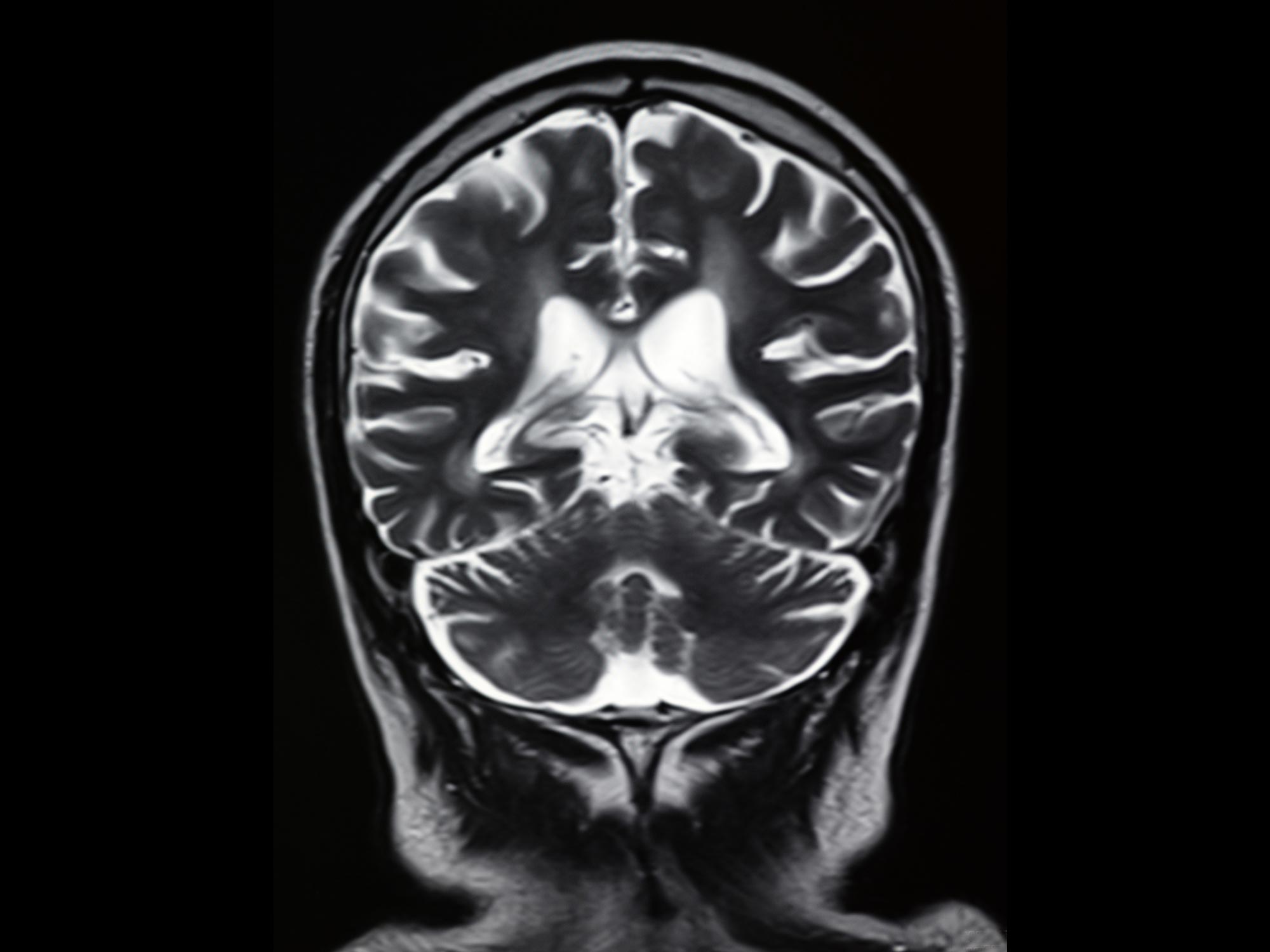

Un estudio reciente dirigido por investigadores de la Universidad de California, Los Ángeles, encontró que las personas que viven con COVID durante mucho tiempo y experimentan anosmia (pérdida del olfato) muestran diferentes patrones de actividad cerebral en comparación con quienes recuperaron el sentido del olfato o quienes nunca tuvo COVID-19. El estudio observacional utilizó imágenes de resonancia magnética y encontró una disminución de la actividad cerebral y una conectividad deficiente entre la corteza orbitofrontal y la corteza orbitofrontal en personas con anosmia por SARS-CoV-2. Esta conexión no se vio afectada en quienes recuperaron el olfato después de la COVID. Los hallazgos sugieren que la pérdida prolongada del olfato por SARS-CoV-2 puede estar relacionada con un cambio en el cerebro que impide que los olores se procesen adecuadamente, pero dado que es clínicamente reversible, entrenar el sentido del olfato puede ayudar al cerebro a recuperar este sentido . El estudio también encontró que los cerebros de las personas con pérdida prolongada del olfato por COVID-19 pueden compensar fortaleciendo las conexiones con otras áreas sensoriales.
Un nuevo estudio dirigido por investigadores del University College London (UCL) encuentra que las personas que viven con COVID durante mucho tiempo y experimentan pérdida del olfato muestran diferentes patrones de actividad en regiones específicas del cerebro.
La investigación utilizó una resonancia magnética para comparar la actividad cerebral de personas con COVID prolongado que habían perdido el sentido del olfato, aquellos cuyo olor volvió a la normalidad después de la infección con COVID y personas que nunca dieron positivo.[{” attribute=””>COVID-19.
Published in the journal eClinicalMedicine, the observational study found that people with long COVID smell loss had reduced brain activity and impaired communication between two parts of the brain that process important smell information: the orbitofrontal cortex and the pre-frontal cortex. This connection was not impaired in people who had regained their sense of smell after COVID.
The findings suggest smell loss, known as anosmia, caused by long COVID is linked to a change in the brain that stops smells from being processed properly. Because it’s clinically reversible, as shown in some subjects, it may be possible to retrain the brain to recover its sense of smell in people suffering the side effects of long COVID.
Dr. Jed Wingrove (UCL Department of Medicine) the lead author of the study, said: “Persistent loss of smell is just one way long COVID is still impacting people’s quality of life – smell is something we take for granted, but it guides us in lots of ways and is closely tied to our overall wellbeing. Our study gives reassurance that, for the majority of people whose sense of smell comes back, there are no permanent changes to brain activity.”
Joint senior author, Professor Claudia Wheeler-Kingshott (UCL Queen Square Institute of Neurology), said: “Our findings highlight the impact COVID-19 is having on brain function. They raise the intriguing possibility that olfactory training – that is, retraining the brain to process different scents – could help the brain to recover lost pathways, and help people with long COVID recover their sense of smell.”
Researchers say their findings also suggest that the brains of people with long COVID smell loss might be compensating for this lost sense by boosting connections with other sensory regions: their brains had increased activity between the parts of the brain that process smell and areas that process sight (the visual cortex).
“This tells us that the neurons that would normally process smell are still there, but they’re just working in a different way,” said Dr. Wingrove.
Professor Rachel Batterham (UCL Division of Medicine), also joint senior author of the study said: “This is the first study to our knowledge that looks at how brain activity changes in people with long COVID smell loss. It builds on the work we undertook during the first wave of the pandemic, which was one of the first to describe the link between COVID-19 infection with both loss of smell and taste.”
Reference: “Aberrant olfactory network functional connectivity in people with olfactory dysfunction following COVID-19 infection: an exploratory, observational study” by Jed Wingrove, Janine Makaronidis, Ferran Prados, Baris Kanber, Marios C. Yiannakas, Cormac Magee, Gloria Castellazzi, Louis Grandjean, Xavier Golay, Carmen Tur, Olga Ciccarelli, Egidio D’Angelo, Claudia A.M. Gandini Wheeler-Kingshott and Rachel L. Batterham, 2 March 2023, eClinicalMedicine.
DOI: 10.1016/j.eclinm.2023.101883
The study was funded by the National Institute for Health and Care Research (NIHR).

“Futuro ídolo adolescente. Explorador amigable. Alborotador. Especialista en música. Practicante ávido de las redes sociales. Solucionador de problemas”.





More Stories
Compensar el sueño los fines de semana puede reducir el riesgo de enfermedad cardíaca en una quinta parte: estudio | Cardiopatía
¿Cómo se hicieron los agujeros negros tan grandes y rápidos? La respuesta está en la oscuridad.
Una estudiante de la Universidad de Carolina del Norte se convertirá en la mujer más joven en cruzar las fronteras del espacio a bordo de Blue Origin